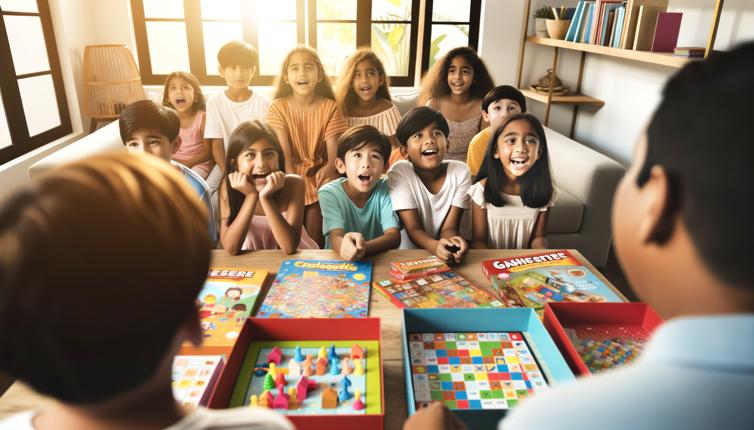Enhancing Cognitive Skills
When children are presented with choices during games, they are required to think and analyze the available options. This process helps to strengthen their cognitive skills, such as problem-solving, decision-making, and logical reasoning.,By engaging in decision-making, kids learn to consider different possibilities and evaluate the potential outcomes of their choices. This encourages them to think critically, weigh the pros and cons, and make informed decisions.
Fostering Creativity and Independence
Allowing children to make choices in games cultivates their creativity and independence. When kids have the freedom to choose how they approach a game or solve a problem, they are encouraged to think outside the box and explore new possibilities.,Moreover, making decisions in games empowers children and gives them a sense of control. It allows them to take ownership of their actions and learn from the consequences of their choices. This autonomy nurtures their independence and boosts their self-confidence.
Promoting Critical Thinking
Children's games that incorporate choice stimulate their critical thinking abilities. When kids are given options, they learn to evaluate each choice based on the information available, assess the potential outcomes, and identify the most favorable solution.,Through this process, children develop analytical thinking skills, learn to consider different perspectives, and make reasoned judgments. These skills are invaluable in various aspects of life, as they enable children to make informed decisions and solve problems effectively.
Conclusion
In conclusion, choice is a fundamental aspect of children's games that should not be overlooked. By providing opportunities for decision-making, games can enhance cognitive skills, foster creativity and independence, and promote critical thinking. As parents, educators, and game designers, it is crucial to create an environment that encourages and values choices in children's games. This way, we can support their overall development and help them become confident, resourceful individuals.









